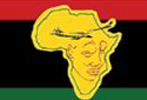Written By: Maya Williams
George Abraham (they/them and he/him) uses the power of form to reclaim Palestinian identity.
Their book Birthright is poetic collection of stories about displacement, memory, and resilience in Abraham’s journey as a queer nonbinary Palestinian American navigating mental health and autonomy in themself and their community.
Abraham encourages their readers to recognize the distinction between “reading” and “Reading” (emphasis on the capital “R”) in Birthright, now available from Button Poetry’s Exploding Pinecone Press. The lowercase “reading” refers to the act of only reading what’s on the page, whereas “Reading” begs of you to read a passage beyond the page, and go further in-depth with the text. Abraham even gives you a visual map on how to consider doing so without trying to hold your hand and coddle you during your reading process.
The major theme that has stuck with me, even after
completing my reading of Birthright,
is that of suicide. Whether or not that’s what the book is about is up to the
reader. Abraham talks about their own journey with suicidal ideation while also
touching on the suicidality of their community of Palestinians. Throughout the poetry
collection, there are poems entitled “in which you do not ask the state of
israel to commit suicide” (yes, “israel” will continue to have a lowercase “i”
for the rest of this review). The title comes from the moment after a
Palestinian woman asks an israeli speaker at the israeli Ministry of Foreign
Affairs why her mother cannot return to Haifa while an American Jew can. The
speaker responds, “If we were to/accommodate every refugee who claims this
land, that would, in essence, be/asking
the state of israel to commit suicide [italics my own].”
Suicide is not a crime, and we need to continue to learn about the awareness of how words like “commit” perpetuates that idea. As Abraham shifts their language about their experience from “considered committing suicide” at age seventeen in the poem “origin story, age 17, to be written on the walls of my childhood house in blood” to “wanted to die” in the present in the poem “apology,” the reader may or may not know that Abraham learns that. However, using the word “commit” within the context of a state, the poems are able to call attention to how israel continues to criminalize Palestinians when israel is the criminal against Palestinians: “You/demands would, then, be labeled ‘a suicide,’ because they are/always labeled ‘a suicide,’ despite all the suicides the israeli state has/forced upon you.”
Moreover, this book has made me think about how non-Black
people of color could be better at not enacting anti-blackness, whether
intentional or not. I know that the term “sand n*****” has been used to harm Brown
Middle Eastern and South Asian people, but the n-word is not a term they are
allowed to reclaim or say. I have never felt comfortable with Brown writers and
artists use of that phrase, even within context. Abraham acknowledges the harm
of that phrase in their writing without trying to use it or claim it in the
poem “Inheritance: a Translation.” Having Hanif Aburraqib (a Black poet and
author of The Crown Ain’t Worth Much,
a Button Poetry alum) as an editor of this book may have played a role in the attentiveness
taken as well in regards to not perpetuating anti-blackness.
A favorite poem of mine in this collection is “Ekphrasis on Fragmented Nationalism” where Abraham goes in-depth as to how the role of art has the power to either take charge in the liberation of Palestine or remain in a performative status of liberation without truly putting in the work. They attend a protest where a Black professor says, “Even in circumstances arguably more hopeless than/Palestine, organized people always triumph over systems of/oppression. Always. So why not believe in Palestine’s liberation?” This moment assists the collection to take a hopeful turn that I didn’t expect.
Finally, Birthright does not only call attention to the erasure of Palestinians in a generalized sense. It also acknowledges how Christianity has been whitewashed: “our churches were built before/their ancestors’ ancestors’ ancestors knew Christianity existed.” It acknowledges how being open about queer and nonbinary identity (“Once, i came out/as non-binary & a Palestinian man/looked right through me”) or being open about mental health amongst religious family members who conflate poor mental health and queerness with demonism (“…a nice woman to excise this demon in her”) can contribute to layers of erasure.

I definitely admire the willingness to call out erasure
without trying to come across as if they are the only one to experience it:
“I’ve/spent too much time wondering if I was the first queer Palestinian to [italics theirs]—I couldn’t understand
the violence of completing that sentence. There are a thousand/Palestinians
buried beneath this poem, and none of them are speaking.”
Birthright is an emotionally heavy book that is worth the read. The experimentation with form throughout is overwhelmingly incredible. My theory for why Abraham is so masterfully skilled with form is their mathematical PhD brain. Yes, they are a PhD candidate in bioengineering at Harvard University, like a boss!
Pre-order Birthright from Button Poetry now.
Also, while you’re waiting for your copy to come in the mail, you can read Abraham’s
work in the Atlas Review
and the
Missouri Review. Watch their spoken word poetry videos
via Button Poetry’s YouTube channel as well.
The post ‘Birthright’: An Invitation to “Read” Rather Than “read” about Autonomy over Erasure appeared first on Black Girl Nerds.

